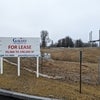Editorial: Set the stage for another 300 years
As the exact date of the 300th anniversary of Worcester’s founding ticks closer to June 14 and all the tercentennial celebrations ensue, the focus should then shift away from the past and toward the future. Central Massachusetts, with Worcester as its economic center, needs to take stock of its business strengths and weaknesses to ensure more prosperous centuries in the years to come.
Along with manufacturing, the higher education and healthcare industries are significant contributors to the innovation happening throughout the region’s $46-billion economy. These innovations will keep Central Massachusetts relevant on the global stage, and the ecosystems around them need to provide the necessary supports for them to excel. Take, for example, IPG Photonics. The company was founded in 1990 in Russia by scientist Valentin Gapontsev on the premise of manufacturing fiber lasers for various applications. The company relocated to Oxford in its early days and now generates nearly $1.5 billion in annual revenues while supporting many complementary research and endeavors throughout the region, including at Worcester Polytechnic Institute.
An encouraging latest development in the Central Massachusetts ecosystem is the May 25 announcement by the 37-year-old Worcester incubator Massachusetts Biomedical Initiatives that it plans to expand again to open up an additional 10 labs at its 17 Briden St. location. The organization already had 28 existing labs at that location from its last expansion opened in 2020. In just two years at that location, the incubator has hosted 26 companies, which created 111 jobs while pushing for technological innovations.
The area most in need of improvement in the Central Mass. innovation ecosystem is financing. Massachusetts nearly rivals Silicon Valley in entrepreneurial support from angel investors, venture capitalists, etc., but nearly all of that is concentrated in Boston, leaving local companies to look east for money. For this region to be an innovation hub, that needs to change.
Having the state and local governments committed to creating this ecosystem will be key to its long-term success. The City of Worcester has already proven itself to be friendly to incoming businesses, particularly real estate developers and bioscience efforts. The state lends a hand, too, such as the $3 million the public-private agency Massachusetts Life Sciences Center gave to MBI for its expansion. This support needs to carry to all the governments in the region.
Central Mass. colleges and universities, with their histories stretching more than 150 years, have been important to the region’s business ecosystem for a long time. They are, though, staring down their own crisis as the number of high school graduates are dropping and affordability concerns are causing more students to question the value of a college degree. The more successful the region’s institutions of higher education are in navigating this crisis and continuing their long traditions, the better the region will be, as colleges and universities create places where people want to be.
The first 300 years of Worcester’s existence saw the community transform from an agrarian town to an advanced manufacturing economy led by high-profile eds and meds, which has become the center of a larger regional business community. The next 300 years will bring additional transformation to the region. Let’s make sure they’re full of successes.









0 Comments